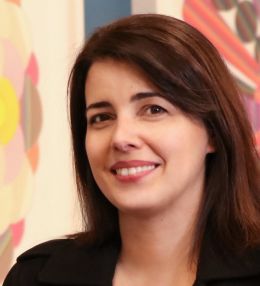First-Gen College Grads and the Hidden Curriculum
By Cindy Ivanac-Lillig, Director of Media Relations, Federal Reserve Bank of Chicago
Sitting across from a polished Smith Barney executive at 21 years old, I experienced a strange identity crisis. As she motioned to the hallway, she asked, “What makes you different than everyone else out there?” I paused awkwardly knowing I shouldn’t share my first thought, but I couldn’t seem to switch my brain onto something more “appropriate.” My only thought was, “Well, I didn’t grow up like many of the folks out there.” I didn’t say that. Instead, I muttered something about having an appreciation for many different perspectives. I didn’t get the job offer. It was one of the first moments I internalized that it didn’t matter that I was a great student or went to a great school, I would always feel somewhat other among most my peers, especially in the field of banking and finance.
As I get older, I realize how deeply being a first-generation American and a first-generation college graduate has affected me and how I am viewed. Researchers have been studying how college and career success are predicated not only on what you learn in the classroom, but also the social capital, norms, and behaviors that are present in a hidden sense on college campuses. These are things that first-generation college students, especially students of color, often lack. This work is known as the “hidden curriculum.” I am not advocating that everyone adopts all these unwritten norms and behaviors. In fact, some are quite detrimental and need to be untaught—a topic for another blog. However, there is value in looking at some of the identified gaps. I want to focus on one that I can relate to, and that is networking.
In preparing to write this blog, I asked colleagues and friends about what made certain college friends seem like they had unlimited potential. Outside of wealth, the adjectives mentioned were charismatic, interesting, and outgoing. No one said “good student.” The common denominator, to me, is confidence. This raises the difficult question of how to build confidence without the starting point of some of the hidden curriculum and/or social capital. One straightforward way is to ask for help in discovering opportunities and experiences. Talk to all of your professors, especially those teaching subjects you love. I was raised to avoid authority figures—to follow rules specifically to avoid authority. This is rational behavior for many people, but unfortunately can be detrimental for college students and professionals. Talk to professors and instructors; ask them for ideas and help in securing opportunities. Ask them to think of other people you should meet and what you shouldn’t miss seeing and experiencing in Chicago. Push yourself to exercise this vulnerability muscle. These casual networks of people thinking about your well-being will help open doors and build your confidence.
To my fellow first-gen student friends, send someone a note today to explore new opportunities and interests of any kind. Seek out the network and experiences you didn’t have when you stepped on campus. I so look forward to hearing and reading about your confident, interesting, and charming selves.
Cindy Ivanac-Lillig is director of media relations at the Federal Reserve Bank of Chicago. She serves as a member of the Career Management Center Advisory Board at Illinois Institute of Technology’s Stuart School of Business.
Posted July 22, 2022
Career Conversations is presented by the Stuart School of Business Career Management Center.



